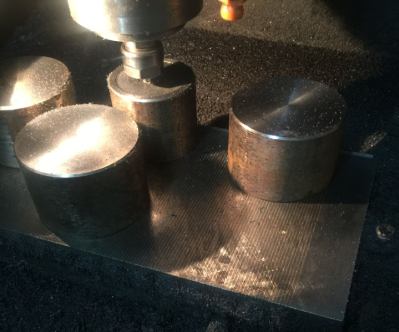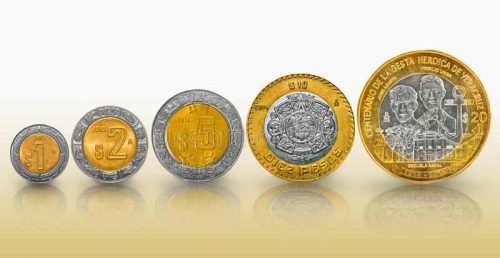Do you know the basic terms of challenge coin? Here are a simple introduction about challenge coins terms you need to know. It helps a lot when you buy a challenge coin.
Coin Die
A coin die is a mold with a confirmed blueprint that is used to produce coins, featuring logos, images and words you want.

An engraving die at GS-JJ factory
It is an onetime and hardened metal stamping tool that can withstand the high pressures during the production process. You need to pay for it in your first order. And if you place re-orders within a specified time, then no extra die changes are required.
Coin Metal
Standard challenge coins are made from brass metal if they are round shape. If a challenge coin has a special shape, then its metal material is zinc alloy. With special attributes, zinc alloy can be created in any shape.
Coin Size

The coin size means the diameter of the challenge coin. The most popular and standard sizes are 1.75”, and 2” in diameter. Coins in 1.75” to 2” are easy to carry and hold and look great on challenge coins displayed rack or box, etc.
Any professional challenge coin maker can produce coins from 1. 5” to 3” and other sizes customers request.
Coin Finish

Coin finish is the plating of the whole metal on the coin. There are 11 different finishes are available at GS-JJ. Gold, silver and brass are common choices, and you can choose antique finishes if you need antique charming.
Besides, a dual plating option is also a wonderful finish option you can make.
Coin Colors
Coin colors help us make the images on cheap challenge coins more impressive and vibrant. Normally, five colors or more can be filled on either side of your custom coins, standard color chart in detail you can check online.

If you want, no color, one-side color or two sides color design on challenge coin are still acceptable.
Coin Edge
The coin edge is another attractive option for a coin design. Standard edge, bezel edge, cross-cut edge, rope edge, oblique edge, spur edge are common edge options for any challenge coin.

Some coin edges are used to make a diamond effect under the light. And some edges around the coin present special meaning for specified units and groups, such as rope edge.
Cut Out
Cut out is a special treat for any challenge coin. Cut out parts are usually shaped as the logo or special icons on the inner part.

Sandblasting
Sandblasting is used to make the coin stand out with a sandblasting effect. Gold and silver sandblasting are more popular on custom coins.
Epoxy Coating
It is a clear coating on the surface of the coin, providing a smooth surface for soft enamel coin. Epoxy coating is mainly used to protect scratching and adding a covering layer to the surface.
2D Coin and 3D Coin
2D or 3D coin? It ups the image on the surface. The 2D coin features with 2D symbol or image, and the 3D coin has raised images as vivid as the real one.

Soft Enamel Coin and Hard Enamel Coin
They are two popular types for custom coins, different crafts and process make them has a different appearance.
Recessed color areas and raised metal parts on soft enamel coin. And the hard enamel coin feature with a flat and glossy surface.

All of the metal prizes, such as lapel pins, custom medals have the same terms as challenge coins. You can refer to these above terms.
